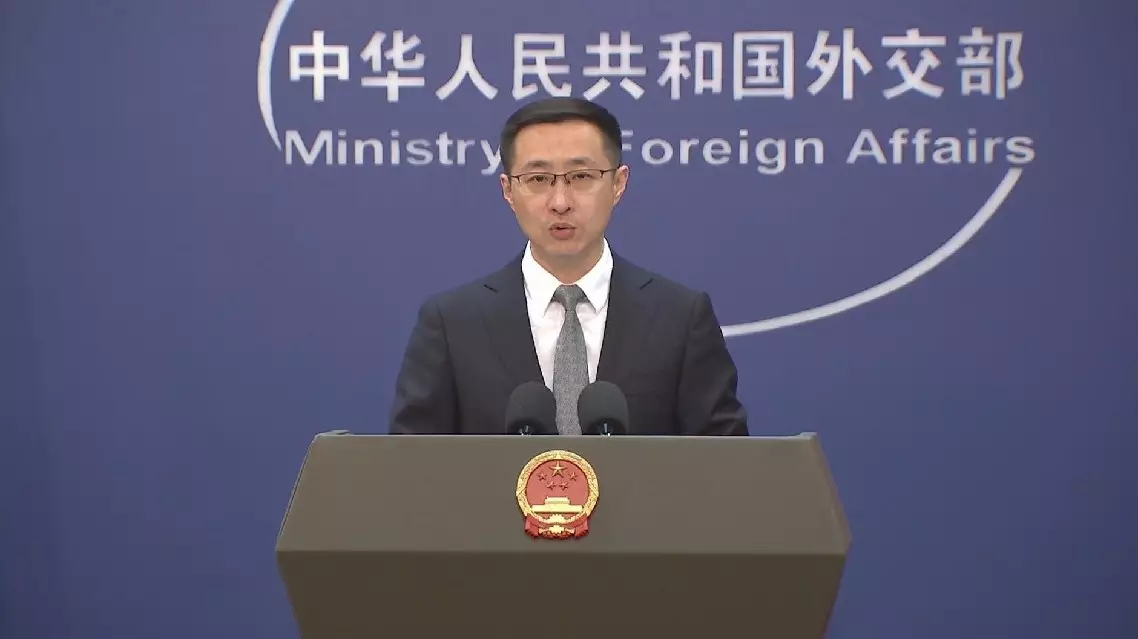Chinese Foreign Minister Wang Yi will attend the UN Summit of the Future and the general debate of the 79th session of the UN General Assembly as the special representative of President Xi Jinping from September 22 to 28, and China hopes that the summit will provide important opportunities for the international community to jointly respond to challenges, said Foreign Ministry spokesperson Lin Jian on Thursday.
He made the remarks at a regular press conference in Beijing.
"Member of the Political Bureau of the CPC Central Committee and Foreign Minister Wang Yi as the special representative of President Xi Jinping will lead a delegation to the UN Summit of the Future and the general debate of the 79th session of the UN General Assembly. Foreign Minister Wang will fully elaborate on China’s policy and propositions on the current international landscape, global governance and major international and regional issues, and further expound on the Global Development Initiative, the Global Security Initiative, the Global Civilization Initiative and other important visions," he said.
"The Summit of the Future as the most important agenda of the UN this year will have an important impact on the reform of the global governance system and is highly expected by the international community. China hopes that the Summit of the Future will provide important opportunities for the international community to build up political consensus, enhance solidarity and collaboration, and jointly respond to challenges. China will strengthen exchanges and cooperation with the UN, relevant countries and international organizations, and galvanize efforts in the international community to uphold true multilateralism, make concerted efforts to deal with various global challenges, jointly promote global peace, development and progress, and advance the building of a community with a shared future for mankind," Lin noted.

Chinese foreign minister to attend UN Summit of Future, general debate of UNGA
Macao has been emerging as a global hub for conventions and exhibitions in recent years by exploring the enormous opportunities in the sector, driving the region to advance its economic diversification and embrace a brighter future.
Macao has received many awards this year, such as the Best Convention City (Asia) and the Best BT-MICE City, showcasing the recognition for and influence of Macao's exhibition industry.
More than 1,000 electronic game enthusiasts from all over the world gathered recently in Macao to participate in a esports themed event.
Su Zhili, organizer of the event, said that Macao's rich experience in hosting large-scale events, coupled with its good infrastructure, has driven him to choose the region as an ideal destination to hold such an activity.
"Macao has held many similar large-scale events. It has rich experience, and the facilities at the venue are relatively mature, so we can start our work comfortably," said Su.
During the first three quarters of 2024, Macao held more than 1,000 conferences and exhibitions in total.
"We will invite more professional, special conferences to be held in Macao and also cultivate more exhibition brands with international influence in Macao, so as to promote Macao's exhibitions to be more market-oriented, professional, international, digital and greener from various aspects. This is our goal," said Elaine Wong, member of the Macao Commerce and Investment Promotion Institute.
In addition, multiple large exhibitions and conferences, such as the Macao International Trade and Investment fair, the Macao Franchise Expo, and the International Infrastructure Investment and Construction Forum, are held regularly in Macao.
With the introduction of a series of policies and measures to facilitate the exchanges between the mainland and Macao, as well as the construction and development of the Guangdong-Hong Kong-Macao Greater Bay Area and the Guangdong-Macao In-Depth Cooperation Zone in Hengqin, Macao's convention and exhibition industry will embrace more opportunities for development in the foreseeable future.
"We have such a good industrial base in the Greater Bay Area. The mode of 'Convention and Exhibition + Industry' not only integrates the industries of Macao, but also the industries of the Greater Bay Area. In addition, Macao actively integrates into the national development and plays a role in the Belt and Road. Why are we so confident in Macao's convention and exhibition sector? Because it is backed by the motherland, and the country gives Macao great support," said Alan Ho, chairman of the Macao Association of Convention, Exhibition and Tourism Sectors.

Macao emerges as global hub for conventions and exhibitions, driving economic diversification and international recognition










